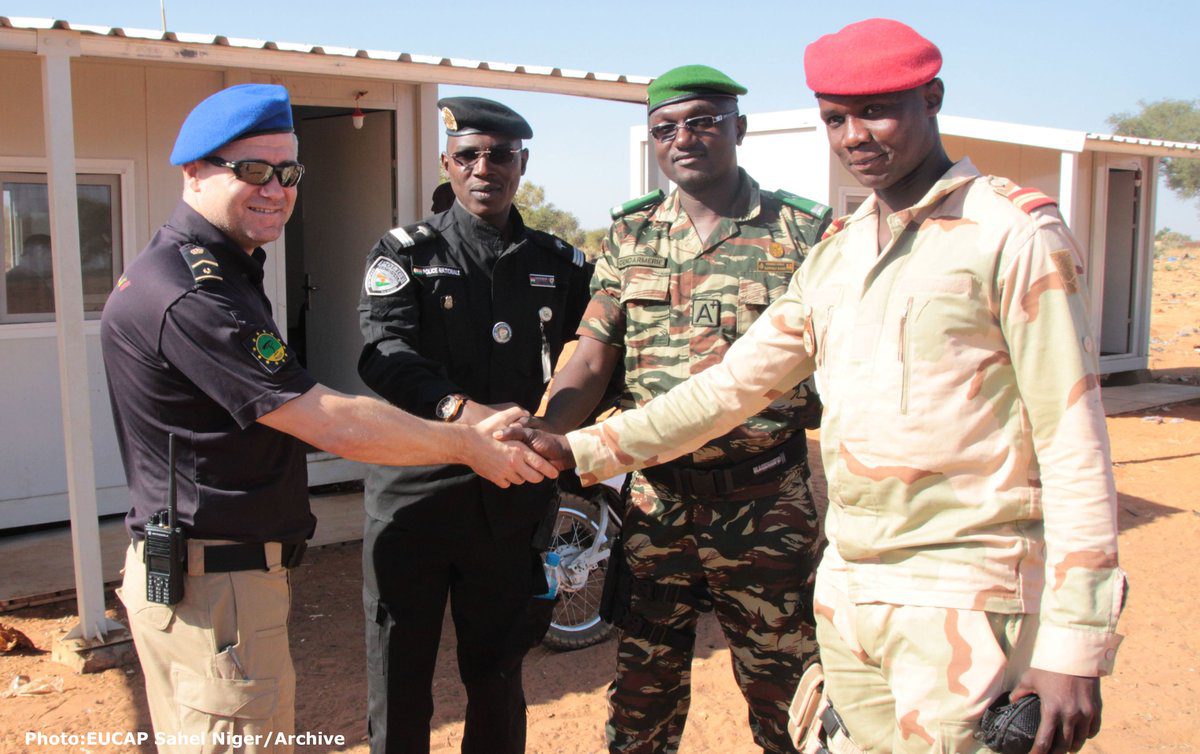
Photo: @EUCAP Sahel Niger on X (Twitter), September 30, 2020.
The European Conservative can reveal that the European Commission is uncertain whether its very own anti-human trafficking teams in the Sahel region are still operational after a series of Russian-backed coups challenged traditional French and European hegemony in West Africa.
Questions regarding the effectiveness of the EU’s joint investigation teams in Niger and Mali, which are meant to combat cross-border criminality alongside local authorities, were first raised by VOX MEP Jorge Buxadé Villalba in a parliamentary question in late September.
The Spanish parliamentarian questioned the Commission about whether there was any truth to reports that Niger’s Ministry of the Interior as well as the Malian government had suspended cooperation with EU teams. Both countries have a reputation as major human trafficking hubs into Europe.
EU and French foreign policy in the Sahel was turned on its head with news of a coup against Niger’s pro-Western President Mohamed Bazoum in July, leading to a geopolitical standoff between rival West African powers and the prospect of further Kremlin involvement in the region.
Formerly one of the few remaining regional Western allies, Niger has allowed EU human trafficking teams to operate in the country since 2017. The teams consist primarily of French and Spanish police officers. However, the European Commission and most EU governments immediately suspended all cooperation with the new military junta on migration matters.
In an email inquiry from The European Conservative to the Commission’s press office asking for clarification on whether the EU’s anti-human trafficking teams were active on the ground in Niger and Mali, a spokesperson stated that officials “were looking into it.”
A month later, the Commission is still uncertain whether the EU still has boots on the ground in the Sahel combating illegal migration, stating that inquiries are “taking longer than initially expected.”
At the time of publication, neither The European Conservative nor Mr. Buxadé Villalba’s queries have been answered, underscoring the evolving uncertainty regarding EU policy towards the Sahel crisis.
The migration crisis in the Sahel is primarily driven by political and ethnic turmoil, the rise of Islamist extremism, and population pressures. The situation is contributing to Europe’s own migration crisis; EU border agency Frontex has recorded 2023 to be the worst year for illegal migration since 2016, with 279,350 known illegal crossings in the first nine months of the year.
The political standoff in Niger remains tense. The EU has unveiled new sanctions against the military junta, while UN and Western forces have completed a forced exit from Mali at the behest of the new pro-Russian government.
The EU and Washington have seemingly taken contrasting stances on the new junta in Niger, with the United States favouring a pragmatic relationship to safeguard its strategically important military bases in the African country.
